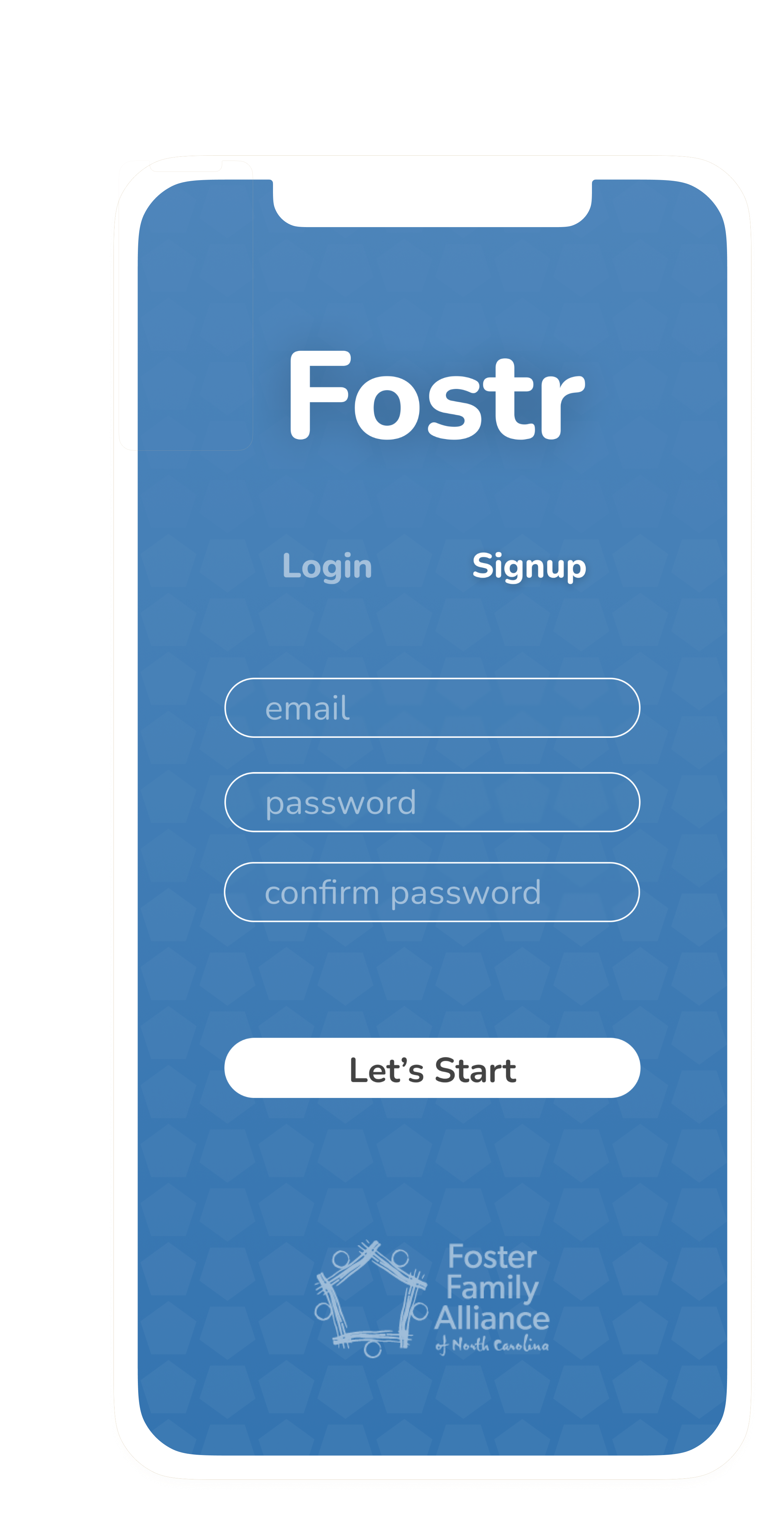Fostr
Roles:
Designer, Researcher
Tools:
Figma, Google Apps Script
Timeline:
Jan 2022 — May 2022
Additional Context:
Completed for a graduate course led by design professionals from IBM
Worked with a group of 5 other student designers—a combination of high-level undergraduate and graduate students
Fostr is a mobile app that pairs up foster parents with mentors, mentees, and buddies in their area as well as helping them organize, plan, and prepare for responsibilities related to fostering.
Navigating the foster system can be difficult. Procedures and protocols can be complex and confusing, and it can be difficult to know where to turn with questions. What’s worse is that procedures and protocols used by social services can differ from place to place, even within the same state, so information available online may not always be accurate for a particular location. But by connecting with an experienced foster parent from your area, you can direct your questions to someone who can offer a more personalized, relevant answer.
Fostr’s purpose is to help provide support and kinship, and to encourage foster families to share experiences and relevant information about the specific processes used by social services in their area.
Background
During a semester-long course led by design leadership from IBM, I worked with 5 other students to help solve a problem presented by the local non-profit Foster Family Alliance of North Carolina, an organization by and for foster parents.
FFA-NC expressed concerns about a potential breakdown in the processes meant to improve school stability for foster children. Best Interest Determination (BID) Meetings are meant to determine whether foster children will be better served by remaining at their current school or by being placed nearer to their new foster home. FFA-NC expressed uncertainties regarding how BID meetings were being held, or whether they were being held at all.
Research & Findings
Through a series of interviews with FFA-NC board members, social workers, school teachers, and foster parents, we uncovered the following key takeaways:
Different people’s experiences with the foster system vary substantially
BID meetings occurred extremely inconsistently
It’s difficult for stakeholders, especially new foster parents, to know who is responsible for each step in the process
Foster parents receive inadequate training, which leaves them underprepared to knowledgeably advocate for the children in their care
Foster parents have widely varying understandings of the BID process
Foster parent knowledge of BID processes was strongly correlated with prior involvement in one or more BID meetings
Those from similar areas across the state reported more similar experiences than those from different areas
The challenge and the need
Ultimately, we found that information inaccessibility and inconsistent protocols posed some of the biggest challenges to foster parents, especially new foster parents.
For that reason, we chose to focus on foster parents’ need to access information about the processes used by their local social services branch so that they can equip themselves to promote what they feel will best support their foster child(ren).
our solution
After a few rounds of ideation and iteration, we determined that the most effective and feasible way FFA-NC could support foster parents and help them overcome the problem at hand was to develop a buddy system in which new foster parents could be paired with more experienced foster parents specifically in their area.
We began by creating a Google Forms survey that FFA-NC could send to foster parents, who could indicate where they live, offer information about their experience fostering, indicate areas of expertise and/or desired areas of expertise in a mentor, and their interest in being a mentor, mentee, a buddy, or a combination. Survey responses auto-populates a Google Sheet, which ran an algorithm I wrote in Google Apps Script to automatically pair users based on a point-based priority scale for the criteria as well as the roles they were seeking.
In addition, we created an interactive prototype for an app-based expanded solution, which would provide additional features like a dedicated chat function, organizational tools, and badges indicating subject matter expertise for mentors. This prototype can be seen (and interacted with) above.


















